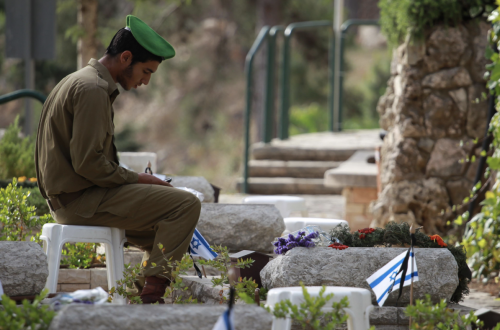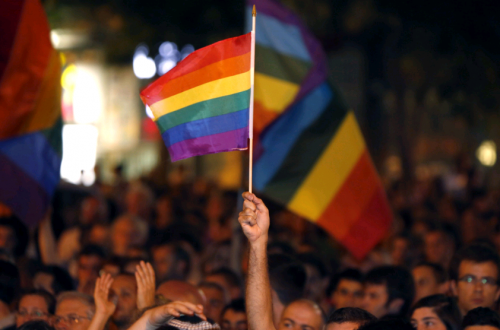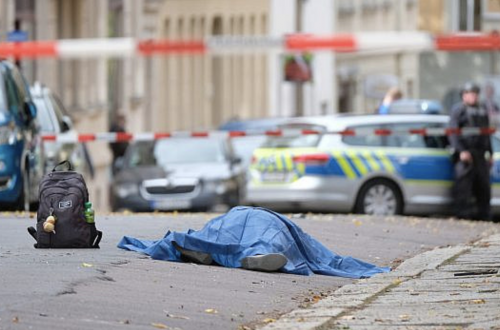The Battle for British Islam is a frustrating book to read. This is not to criticise Sara Khan, or co-author Tony McMahon – it’s simply a function of the story they have to tell. The authors offer an invaluable tour d’horizon of the different movements, events and (re)groupings which have shaped British Muslim identity and experience over the last couple of decades or so. A particular focus is the Government’s counter-extremism policy and the very concerted resistance it faces.
The book opens with a fascinating account of one of Channel’s many underreported success stories. Muneera, a teenager from Birmingham, was on the brink of travelling to Syria, but was deradicalised by Leila, herself a former member of Hizb ut-Tahrir. Many other Muslims are working on the frontline against extremism. Ahmed, a prison Imam originally from Africa, was shocked at the spread of Islamist ideology in the UK and appalled to go to lunch after Friday prayers in a London mosque and find himself in the middle of a training session preparing Muslims for jihad.
Much of the territory covered by the early chapters will be familiar to Harry’s Place readers already. But if you need a refresher course, here’s your chance to be reminded of the growth of various Salafist and Islamist groups in the nineties and noughties. Whereas some groups have changed their names – partly to evade the authorities – others have changed their nature. JIMAS, once a leading Salafist organisation, is now a far more moderate group which works to foster inter-faith dialogue.
Why did extreme groups start to secure a foothold at the turn of the century? Paradoxically it may partly have been because ‘traditional ties of family and community were loosening, and individuals were becoming open to new ideas about their faith.’ But whereas some chose a liberal path, others were drawn to the certainties of Islamism. As Khan and McMahon’s narrative progresses, we encounter more and more (all too) familiar names – iERA, iENGAGE (later rebranded as MEND), Islam21C, CAGE and 5Pillars.
There’s a great deal for the opponents of extremism to deal with. As well as the hate and intolerance, there’s the dishonesty. MEND’s Sufyan Gulam Ismail’s claim that no one condemned the arson attack on a mosque in Muswell Hill and CAGE’s insistence that Jihadi John was harassed into radicalism are just two examples charted here.
Soft Islamists oppose ISIS – yet they apparently share ISIS’ anxiety to destroy the ‘grey zone’ of genuine tolerant pluralism and foment mutual distrust. Anti-Prevent discourse is full of straw men – exaggerated and misreported incidents (many of which have nothing to do with Prevent at all) and dire warnings that simply praying or growing a beard will land you in trouble. One double bind that Prevent finds itself in stems from its keenness to intervene at an early stage, before there is any question of criminal activity. This approach is twisted into accusations of ‘spying on the innocent’.
Through her work with Inspire, Khan knows only too well how much damage Islamist extremism has caused to British Muslim communities. Depressingly, Islamists have had considerable success in defining the nature of mainstream Islam.
[T]hese extremists claim that they ‘represent the vast majority of British Muslims’. If this is the case, then British Islam faces a calamity.
It’s vital to their plans that they succeed in painting the Prevent strategy as ‘toxic’, as something which demonises all Muslims and silences debate. This masks what is really going on – the demonization of liberal Muslims and the silencing of secular voices with the cry of ‘Islamophobia’. The utterly perverse willingness of some leftists, feminists and LGBT activists to forge alliances with Islamists, and the latter’s willingness to dishonestly coopt the rhetoric of liberalism and freedom, is charted in dispiriting detail. If your memories of the UUK gender segregation guidelines, the Law Society’s advice on Sharia wills or Maryam Namazie’s various disrupted speaking events have faded – prepare to be annoyed all over again.
In the discussion of counterjihadism, it might have been useful to tease out still more precisely the awkward middle ground (another grey zone perhaps) between Pamela Geller and Pegida, on the one hand, and those journalists and activists liberal Muslims are generally happy to claim as allies. It’s a complex spectrum – and the position of someone like Douglas Murray, for example, is intriguingly poised. There is also perhaps just a slight tension in the book between a wish to promote and foster a positive picture of British Muslim identity and a clear anxiety about the growing influence of Islamist views. However this is understandable, given that (as Khan explains at the very beginning of the book) she has to fight on two fronts, against the far right and Islamism, both of whom see democracy and Islam as incompatible. And there are some really heartening stories here about ordinary British Muslims – particularly women – pushing back robustly against extremism in their own neighbourhoods.
I thoroughly recommend The Battle for British Islam – I found myself having to resist the urge to bookmark every other page of the kindle edition. (And it covers a huge amount of ground which I haven’t even been able to touch on here.) However my fear is that too many of its readers will be either confirmed allies or implacable enemies, already well versed in these issues, rather than coming from that ‘grey zone’ in the middle who need to be – and could be – won over.


